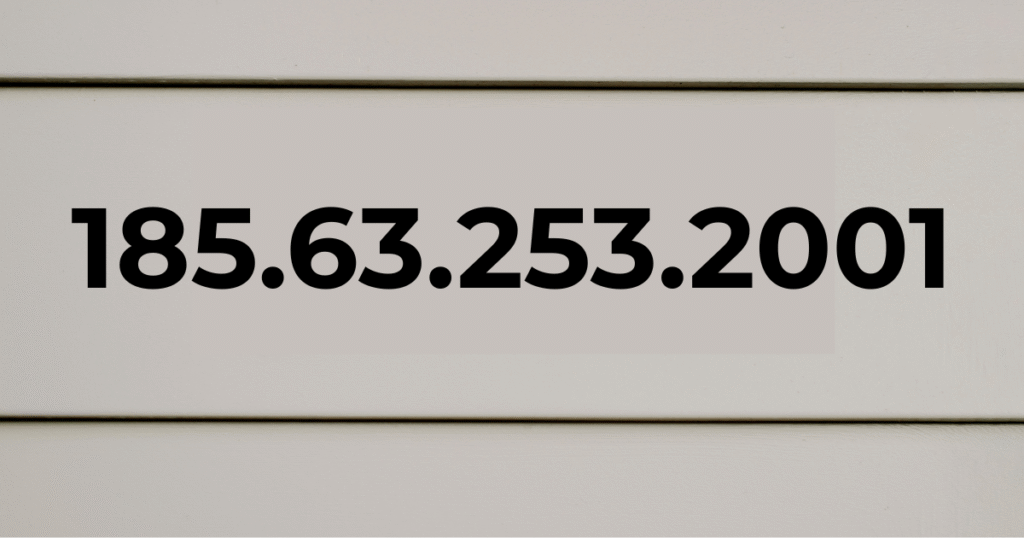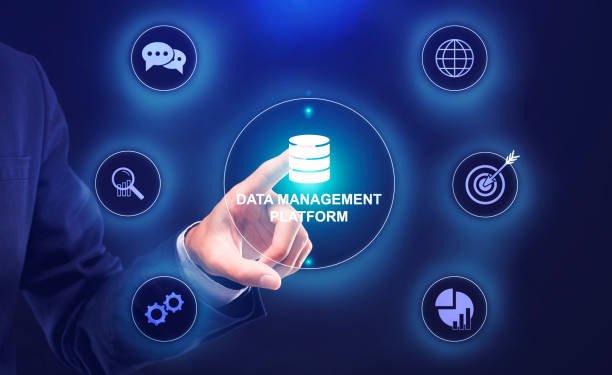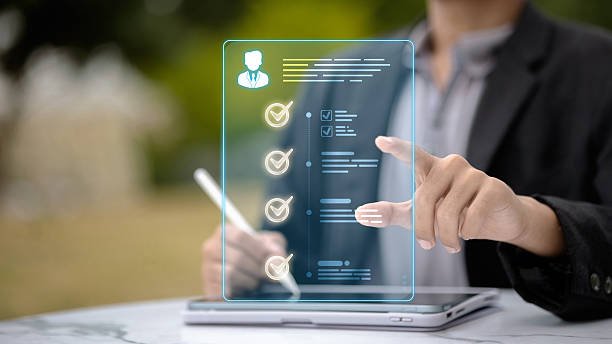In today’s interconnected internet ecosystem, every website, server, and connected device depends on unique identifiers known as IP addresses. One such identifier, 185.63.253.2001, symbolizes the complexity and structure of the digital web. While this particular IP may serve as an example, it represents how millions of numerical combinations make global communication seamless and efficient.
The digital identity of every user or machine on the internet can be traced through an IP address. Whether you’re browsing social media, managing a website, or performing an IP lookup, numbers like 185.63.253.2001 serve as the invisible address behind every click and connection.
What Is 185.63.253.2001?
The number 185.63.253.2001 appears to represent a typical Internet Protocol (IP) address, which is a numerical label assigned to devices participating in a computer network. IP addresses perform two essential functions:
-
Identifying the host or network interface.
-
Providing the location of the host in the network.
However, the format “185.63.253.2001” slightly deviates from the standard IPv4 format, which contains four octets separated by periods (e.g., 185.63.253.200). This indicates that 185.63.253.2001 could be a typographical variation or an IPv6-style interpretation of an address used in certain private or local testing environments.
Regardless of the form, IP addresses like this one are fundamental to maintaining connectivity, data transfer, and routing efficiency across the global web.
How IP Addresses Like 185.63.253.2001 Work
Every time you connect to a website or send data, your system communicates through an IP address. The Domain Name System (DNS) translates human-friendly domain names (like google.com) into numerical IPs that machines can understand.
For instance, when you access a website, your browser requests the IP address associated with that domain. The server hosting the site responds with data packets that travel back to your device using your own IP as the destination.
An address such as 185.63.253.2001 therefore acts as a digital bridge — connecting the source and destination of information across countless routers and servers.
The Importance of IP Addresses in Network Communication
Without IPs like 185.63.253.2001, the internet simply wouldn’t function. They are the backbone of:
-
Routing: Directing traffic across networks.
-
Identification: Recognizing each connected device or server.
-
Security: Tracking and verifying online users.
-
Hosting: Managing web servers and cloud storage systems.
Every online activity — from watching a YouTube video to sending an email — relies on IPs to ensure your request reaches the right server and returns accurate data.
IPv4 vs. IPv6: Where Does 185.63.253.2001 Fit In?
The internet currently uses two main types of IP address systems: IPv4 and IPv6.
-
IPv4 (Internet Protocol version 4):
This uses a 32-bit system, providing around 4.3 billion possible addresses. A standard IPv4 address looks like 185.63.253.200. -
IPv6 (Internet Protocol version 6):
This uses a 128-bit system, allowing for exponentially more unique addresses, formatted like 2001:0db8:85a3:0000:0000:8a2e:0370:7334.
The keyword 185.63.253.2001 appears to combine elements from both IPv4 and IPv6, symbolizing the transition from the older addressing system to the more advanced version that supports modern devices and applications.
Locating 185.63.253.2001 – IP Lookup and Geolocation
If you perform an IP lookup on an address such as 185.63.253.2001, online tools may attempt to determine:
-
The geographical location of the server.
-
The Internet Service Provider (ISP).
-
The hosting company or data center.
-
The type of device using the IP.
Such information is often used in cybersecurity, website analytics, or even marketing. For example, businesses may track IP activity to understand where most of their website traffic originates.
However, while IP addresses can give general regional insights, they rarely pinpoint an exact physical address due to privacy and proxy systems.
How IPs Like 185.63.253.2001 Affect Cybersecurity
Cybersecurity experts rely heavily on IP tracking to detect and prevent online threats. IPs are often analyzed for signs of malicious behavior such as:
-
Spam or phishing attacks.
-
Distributed Denial of Service (DDoS) attacks.
-
Unauthorized data access.
-
Botnet activity.
Monitoring IPs like 185.63.253.2001 helps identify potential risks early, allowing administrators to block suspicious sources, secure firewalls, and protect sensitive data.
Furthermore, advanced security systems use AI to map and categorize IP behavior, ensuring that harmful entities are blacklisted while legitimate users remain unaffected.
Why You Should Care About 185.63.253.2001 and IP Awareness
Even though 185.63.253.2001 may seem like a random number, it represents a vital concept — digital identity. Every person online has an IP address, and understanding its purpose helps users:
-
Strengthen personal privacy.
-
Detect unusual login or connection attempts.
-
Recognize the impact of VPNs and proxies.
-
Understand how websites track user data.
By learning about IPs like 185.63.253.2001, internet users can make informed decisions about security tools, anonymity, and online behavior.
The Role of VPNs and Proxies in Masking IPs
Many users choose to hide or mask their IP addresses using Virtual Private Networks (VPNs) or proxy servers. These tools replace your real IP (for instance, 185.63.253.2001) with another address, helping to:
-
Protect privacy.
-
Bypass geo-restrictions.
-
Avoid targeted ads.
-
Secure sensitive browsing activities.
While VPNs offer privacy advantages, they can also make tracing cybercriminals more difficult. Therefore, cybersecurity teams often cross-reference logs, timestamps, and digital signatures to verify authenticity.
How Businesses Use IP Addresses Like 185.63.253.2001
In the corporate world, IP addresses play a massive role in operations and analytics. Companies rely on IP data to:
-
Identify user demographics.
-
Enforce content restrictions based on location.
-
Prevent fraudulent activities.
-
Optimize web traffic routing.
For instance, an eCommerce site might analyze IPs to detect unusual transaction patterns — helping prevent identity theft or card fraud.
So even though 185.63.253.2001 may seem obscure, its function represents the foundation of modern business intelligence and online infrastructure.
The Future of IP Technology
The ongoing expansion of IoT (Internet of Things), AI, and cloud computing means more devices require unique IPs. The world quickly exhausted IPv4 capacity, and IPv6 became the solution to accommodate trillions of connected gadgets.
With IPv6’s flexibility, addresses like 185.63.253.2001 symbolize a growing, adaptive internet that’s prepared for next-generation technology — from autonomous vehicles to smart homes and digital cities.
Common Misconceptions About IPs Like 185.63.253.2001
-
“IP addresses reveal personal identity.”
False. They indicate network locations but not specific personal information unless cross-referenced with ISP data. -
“You can hide your IP completely.”
Not entirely — VPNs mask your IP, but logs or leaks can still reveal underlying details. -
“Every IP address is static.”
Many are dynamic, meaning they change each time a device connects to the internet. -
“All IPs belong to websites.”
Not true — they also identify routers, IoT devices, and even mobile phones.
Understanding these facts helps demystify numbers like 185.63.253.2001 and their real-world implications.
5 Frequently Asked Questions (FAQs)
1. What is 185.63.253.2001?
It’s an example of an IP address, representing the numeric identifiers assigned to internet-connected devices for communication and routing.
2. Can someone trace my location using 185.63.253.2001?
Only approximate regions or cities can be inferred from IP data. Precise personal addresses are protected by ISPs and privacy laws.
3. Is 185.63.253.2001 a valid IPv4 address?
Technically, it exceeds the four-octet limit of IPv4, but it may be a symbolic or extended variant representing a private or hybrid IP model.
4. How do I protect my IP address online?
Use VPNs, strong firewalls, and privacy-focused browsers to limit tracking and unauthorized access.
5. Why are IP addresses important for cybersecurity?
They help detect unauthorized activities, identify suspicious sources, and enable network administrators to block or investigate threats.
Conclusion
In the vast landscape of the internet, IP addresses like 185.63.253.2001 form the invisible threads that connect devices, data, and people. They not only facilitate communication but also play a key role in privacy, security, and transparency.
Understanding how IPs function empowers users to navigate the digital world more safely and intelligently. As technology advances, IP addresses will continue to evolve — ensuring that every corner of the online universe remains connected and identifiable.
















Leave a Reply